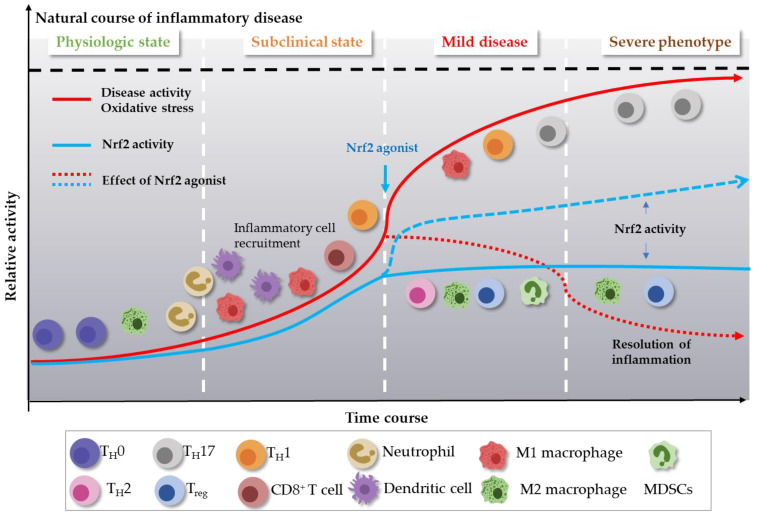Figure 3.
Links between immune cells, inflammatory disease activity, and levels of oxidative stress. Exposure of the immune system to oxidative stress increases inflammatory disease activity. Oxidative stress is sensed by the Nrf2 system, which induces intracellular signaling pathways in immune cells, thereby triggering an immediate innate immune response, followed by differentiation of adaptive immune cells. Ideally, an effective compensatory response is elicited by increased expression of Nrf2, which restores homeostasis. Severe oxidative stress that can be more than physiologically compensated by the Nrf2 response leads to an increase and uncompensated response in the form of excessive inflammation; for example, increased expression of Th17. This leads to aggravation of inflammatory disease activity. Thus, administration of Nrf2 agonist can play an important role in regulating immune homeostasis.

